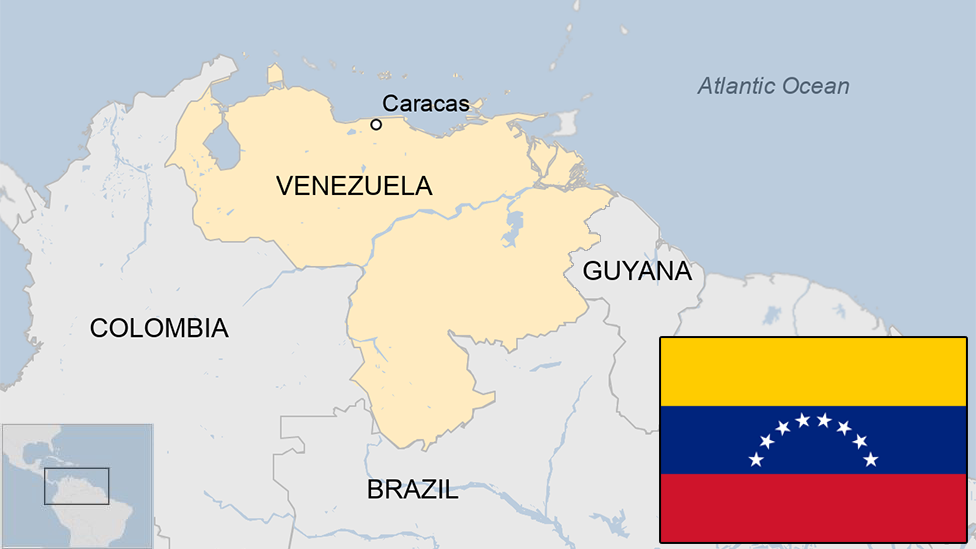Who are the main players in Venezuela's political crisis?
- Published
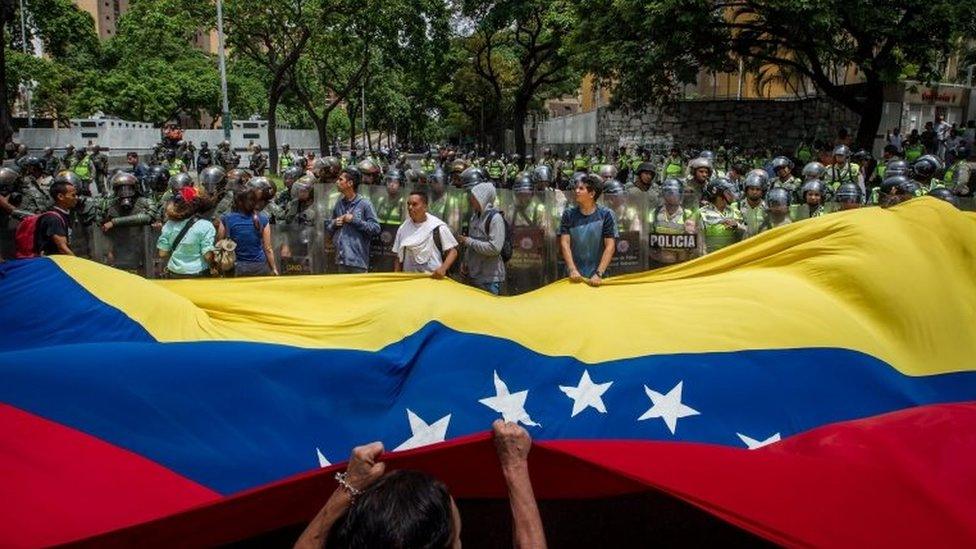
Anti-government protesters are demanding that President Maduro face a recall referendum
As opponents of Venezuela's President Nicolas Maduro take to the streets in their campaign to hold a recall referendum against him, and President Maduro denounces "imperialist" moves to topple him, political tensions in the Latin American nation are at boiling point.
Here are brief thumbnail sketches of key players in the Venezuelan crisis.

President Nicolas Maduro
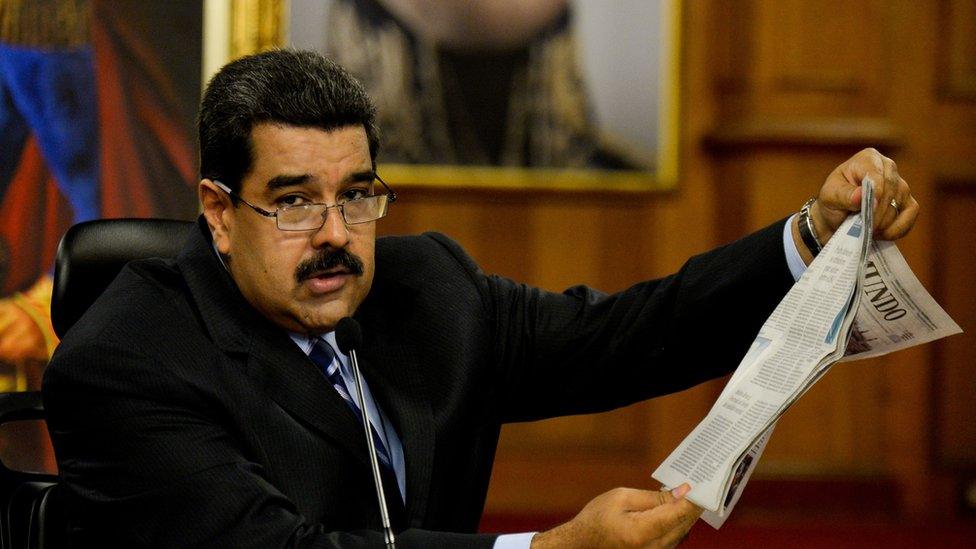
The 53-year-old former vice-president took over the leadership of Venezuela's leftist "Bolivarian Revolution" after the death in 2013 of its figurehead, Hugo Chavez.
He is now fighting for his political survival as Venezuela, Latin America's major oil producer, suffers an economic meltdown.
A former bus driver and trade union leader, he is mocked by critics as politically inept.
He is also widely blamed for corruption and policy failures that have caused chronic shortages of food and medicines, increased crime and collapsed public services.
Mr Maduro has failed to maintain the tight control over the country that the charismatic Mr Chavez wielded.
He is following his predecessor's tactics of loudly denouncing an "imperialist" plot to unseat him.

Henry Ramos Allup
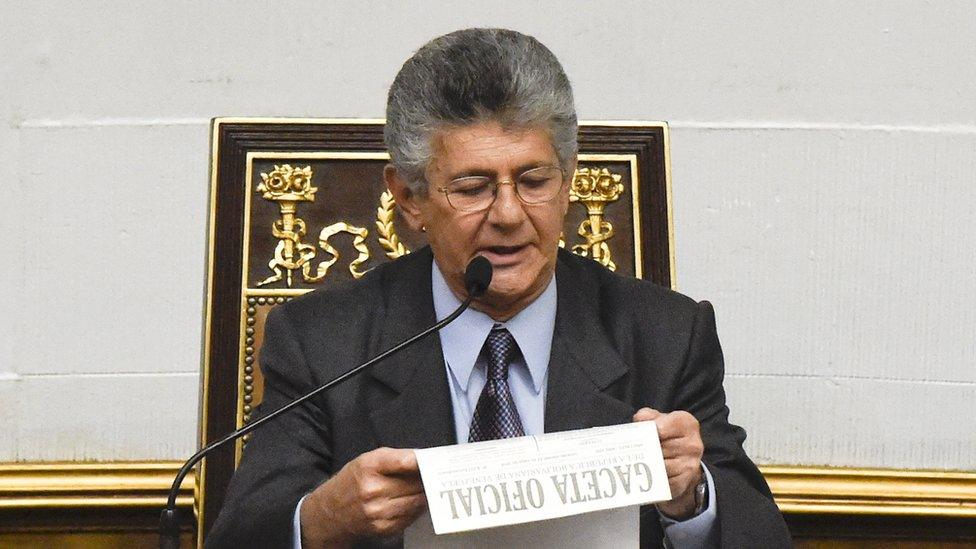
Mr Ramos Allup is the Speaker of Venezuela's National Assembly and a long-standing leader of the opposition party, Democratic Action (AD).
The 72-year-old lawyer was elected head of the Assembly in January 2016, following a resounding victory by the opposition coalition in parliamentary elections.
He is widely viewed as an experienced and pragmatic politician who is determined to remove the Socialist "Chavista" movement from power.
His decision to remove pictures of the late President Hugo Chavez from parliament angered the government, and fuelled their mistrust of him.

Aristobulo Isturiz
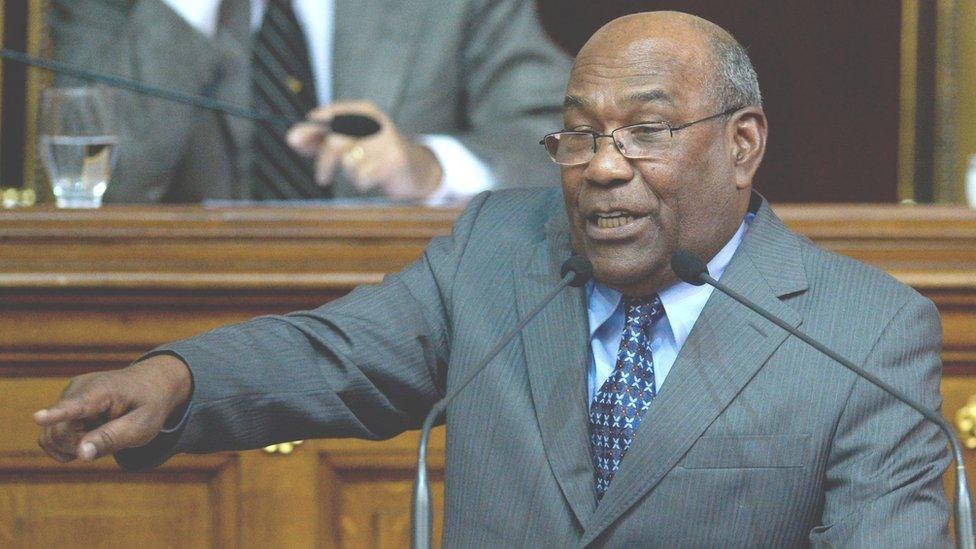
Mr Isturiz, 69, was appointed the country's vice-president by President Maduro in January 2016.
The veteran politician has occupied various posts, including minister of education, and has been an active figure in the fight for social and trade union rights.
He could potentially become president should a referendum to remove President Maduro be successful.
The former TV presenter is seen as a firm ally of Mr Maduro and the opposition therefore fears he would continue his policies.

Diosdado Cabello
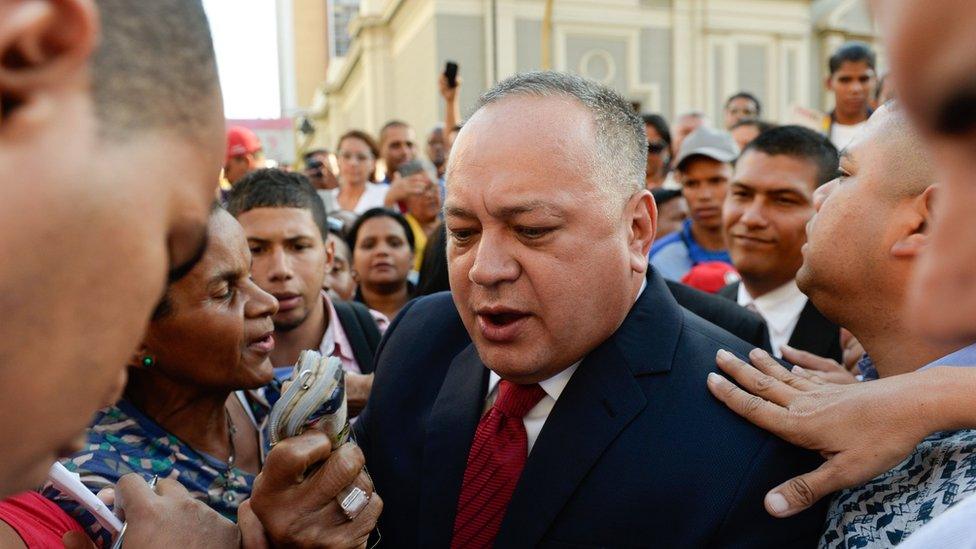
Mr Cabello, 53, is a former military comrade of Hugo Chavez and the number 2 in Venezuela's governing Socialist Party (PSUV).
He is one of the most hard-line opponents of the opposition movement's bid for a recall referendum aimed at removing President Maduro from power.
He is widely seen by critics and supporters alike as a strongman in the Chavista movement and even as a potential political rival to President Maduro.
He has dismissed the recall referendum as a "coup attempt" and vowed to resist it.
He filed a libel lawsuit this year in the United States to counter media reports there alleging his involvement in drug-trafficking and money-laundering.

Henrique Capriles
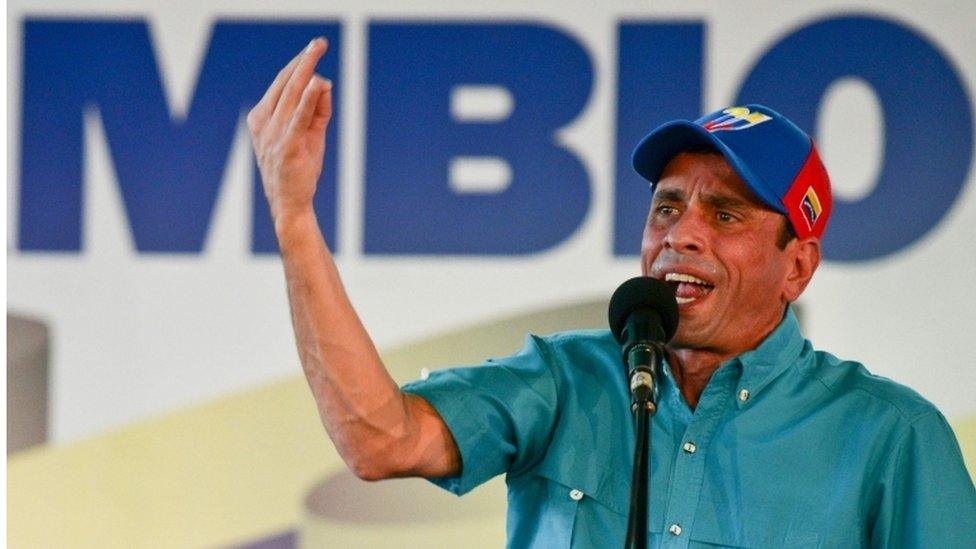
Mr Capriles is the 43-year-old opposition governor of Miranda State and a former two-time presidential candidate.
He narrowly lost the 2013 presidential election
He is a prominent and vocal critic of the Maduro government and a standard-bearer for the opposition's campaign to unseat him through a recall vote.
Mr Capriles has dismissed the president's recent decree declaring a state of emergency, saying the government will have to "bring out the tanks" to enforce it.

Leopoldo Lopez
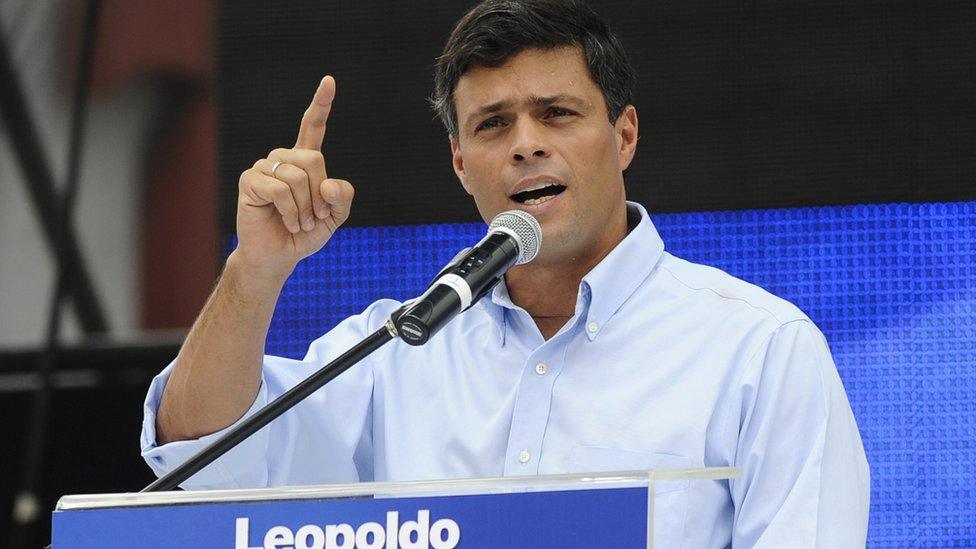
Mr Lopez, 45, is a jailed political opponent of both Mr Chavez and Mr Maduro.
He remains an important rallying figure in the opposition campaign to end the leftist "Bolivarian Revolution" in Venezuela.
He was sentenced in 2015 to nearly 14 years in prison for inciting violent anti-government protests, but his supporters insist he is innocent.
They say he was jailed on trumped-up, politically motivated charges.
He is serving his sentence in Ramo Verde military prison outside Caracas, and his wife, Lilian Tintori, has been waging an international campaign for his release.

Tibisay Lucena
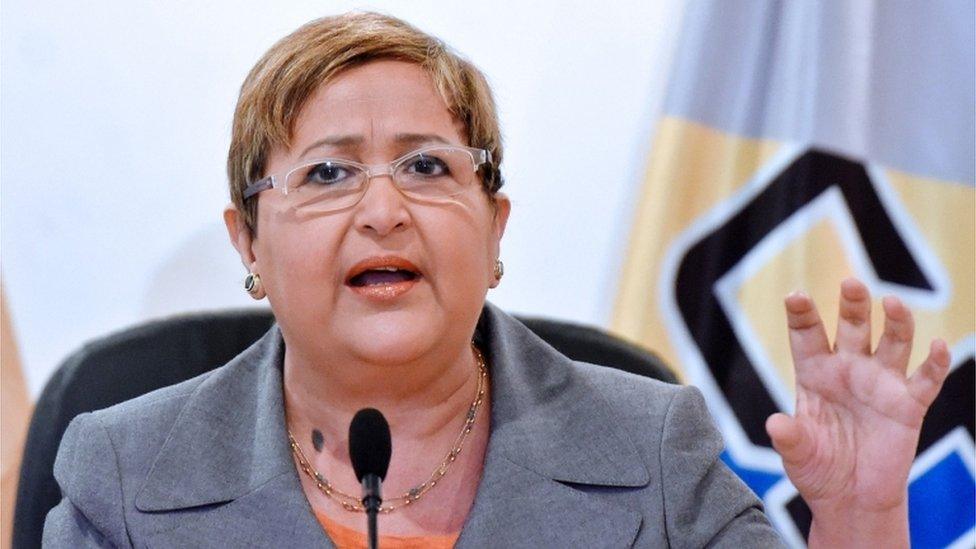
Ms Lucena, 57, is the president of Venezuela's National Electoral Council (CNE).
The CNE has the task of overseeing elections in the country, including the possible recall vote being promoted by Mr Maduro's opponents.
Reviled by the opposition as an obedient political tool of the Chavista government, she is facing heavy pressure from inside and outside the country to guarantee the constitutional procedures are followed.
Ms Lucena, who has headed the CNE for the past nine years, has previously described Venezuela's electoral system as the "most secure and verifiable in the world".

Vladimir Padrino
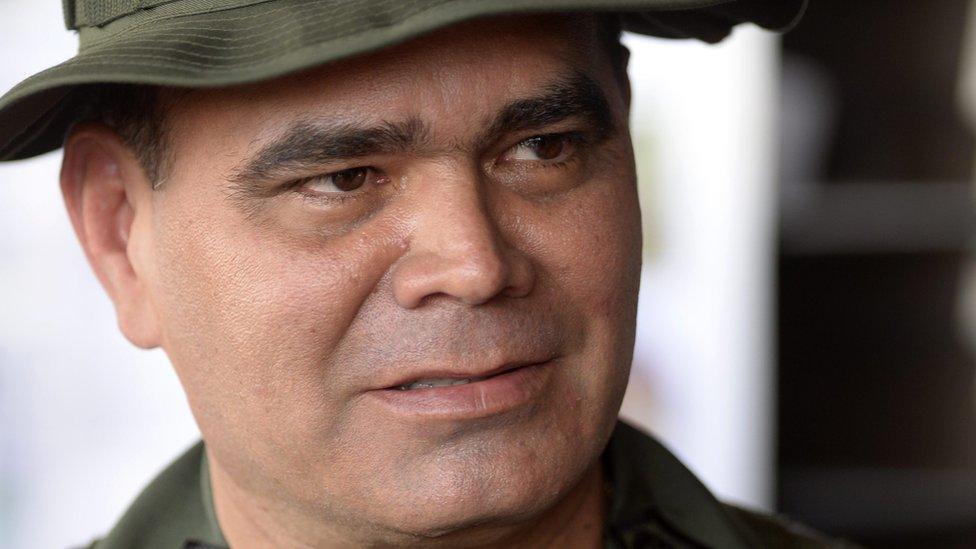
The 52-year-old Gen Padrino is Venezuela's defence minister.
As the operational head of the country's armed forces, he is in the hot seat after President Maduro decreed a state of emergency.
General Padrino has declared that the armed forces will support Mr Maduro against "interventionism, the coup and the economic war".
But reports of discontent in the military ranks are becoming increasingly common, putting Gen Padrino into a difficult position.
BBC Monitoring reports and analyses news from TV, radio, web and print media around the world. You can follow BBC Monitoring on Twitter, external and Facebook, external.
- Published19 May 2016
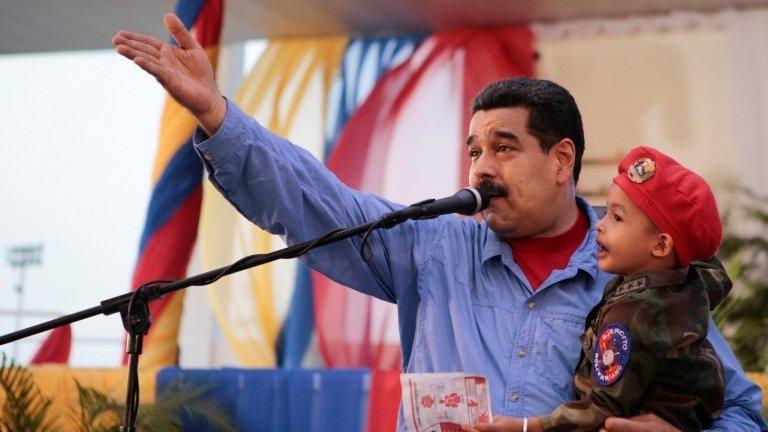
- Published9 September 2024
